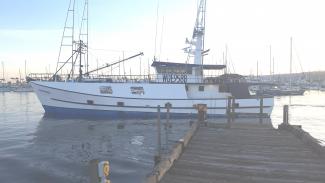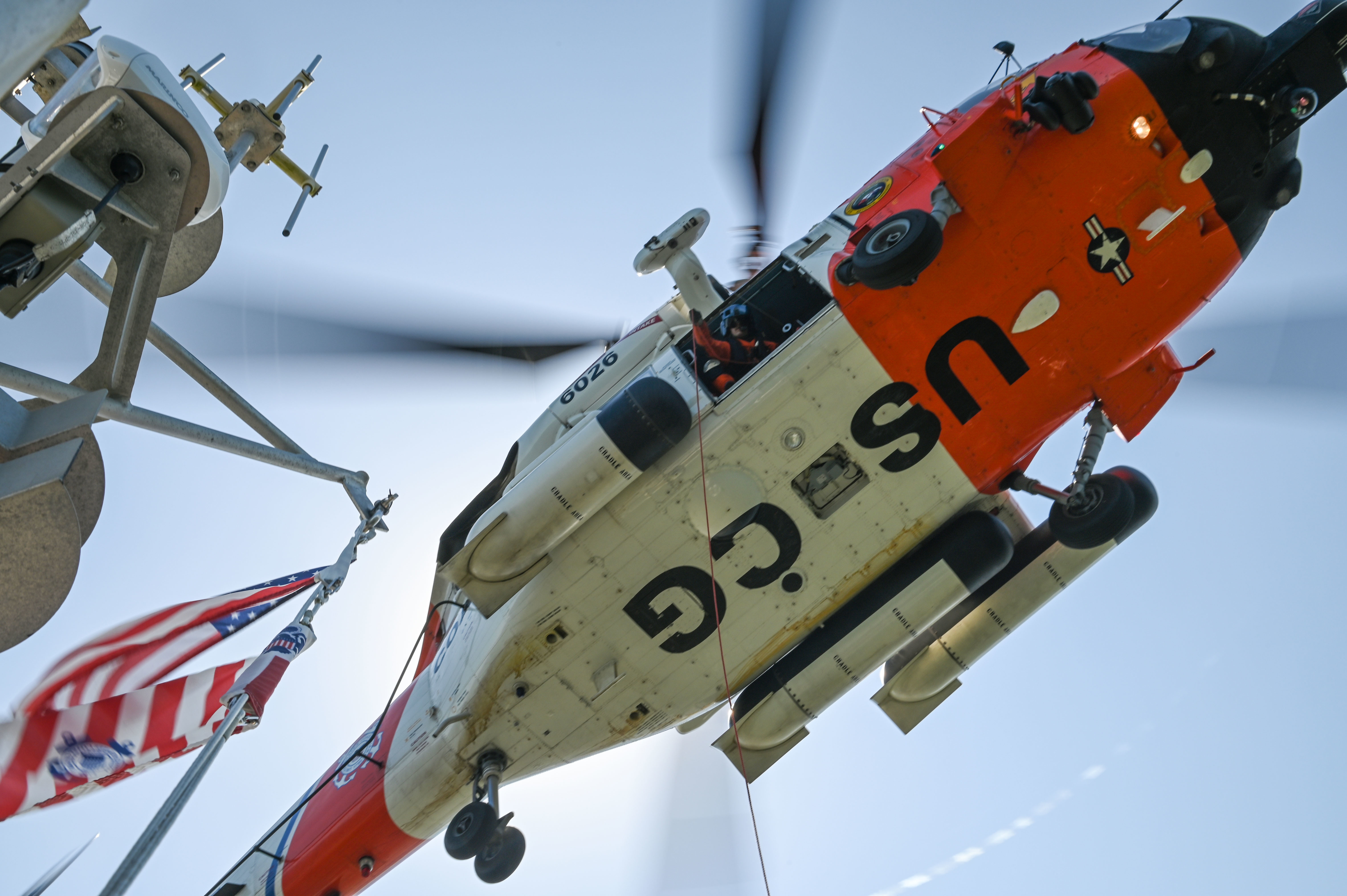The U.S. Coast Guard is prosecuting John D. Gibbs, the owner and managing operator of the Southern Horizon, an 89-foot tuna longliner caught using a foreign national as master – a so-called ‘paper captain’ – on Oct. 19, as part of a broader operation by the Coast Guard to address the increased instances of vessel owners illegally hiring foreign captains to command U.S. flagged ships in violation of the Jones Act.
If found guilty Mr. Gibbs, who is a repeat paper captain offender, faces over $12,000 in fines, according to Coast Guard officials.
Noticing an uptick in the number of Jones Act violations in the Pacific Northwest since 2020, Coast Guard Sector Columbia River initiated Operation Flat Stanley, to target and prosecute vessel owners who use paper captains, the practice of listing a U.S. citizen as master on paper while giving the top job to a less expensive hire from abroad.
“About three years ago, two junior officers serving at Sector Columbia River detected a number of Jones Act violations while conducting safety boardings,” said Lt. Cmdr. Colin Fogarty, the enforcement chief at Coast Guard Sector Columbia River who helped initiate the operation. “In reviewing those detections, the Enforcement Division began to pull on the strings and we quickly realized we were unraveling a large ‘Paper Captain’ ring. The target vessels were all owned and operated under separate and discreet limited liability corporates (LLCs), in turn the crews were contracted and hired by a separate corporation, finally all ships were controlled by yet another LLC. Our Sector put in hundreds of hours of analysis, pulling state incorporation documents and reviewing crew contracts. Our efforts determined that a single individual was controlling and directing the vast fleet of ships and engaging in a pattern and practice of hiring illegal foreign nationals to serve in the capacity as Master. Since that initial engagement, we’ve broadened our efforts and detected other vessels, unrelated to the large fleet, that are engaged in similar subversions of the Jones Act.”
In the Southern Horizon case, the Coast Guard chose to prosecute the vessel managing operator and not the actual paper captain on board who was pretending to be in charge, although it is the prerogative of the Coast Guard to do so.

“Based on the precedent set at Sector Columbia River, the Coast Guard is focusing our attention not on the Paper Captain but rather on the owner and managing operator,” said Lt. Cmdr. Fogarty. "There are multiple reasons this strategy is advantageous. First, it allows the Coast Guard to seek higher penalties for repeated violations. Second, it allows us to go to the heart of the problem, the axiom, the managing operator. It is this individual that is responsible for the hiring of paper captains and ultimately it is the managing operator who is reaping the financial reward at the cost of the unemployed American fisherman."
“Our end goal is to make it too costly for managing operators to cut corners with illegal foreign masters,” said Fogarty. “At the end of the day, I don’t want to seek penalties, I want these outfits to follow the law. I want them to hire well-trained American mariners.”
The Southern Horizon case was presented to a Coast Guard hearing officer on Nov. 29 and the typical timeline for a decision is 30-90 days. If found guilty, Gibbs and the vessel face a litany of potential penalties, including the invalidation of the certificate of documentation, fines, and potential complications with payment plans if there is a lien or mortgage on the vessel.
Mr. Gibbs could not be reached for comment. According to the Western & Central Pacific Fisheries Commission, Gibbs is listed as master of the Southern Horizon, owned by F/V Pac Horizon Inc. of San Diego, Calif., the vessel’s registered home port.
“The violation at hand is truly just a pebble dropping in water that causes ripples,” Fogarty said, “It impacts the C.O.D., it impacts their fishing permit, and it impacts their relationship with their bank. The Coast Guard is purely focused on the violation at hand, but it’s hard not to see the greater impact of these actions. This should all go to demonstrate to would-be future violators that crime doesn’t pay and if you’re going to operate a U.S. flagged vessel you will have a U.S. master at the helm.”
Operation Flat Stanley has involved coordination between various units in the Pacific Northwest, intelligence collection and sharing, and training and certifications for officers specifically intended to increase successful adjudications of these violations.
“I’m proud to say we have exported what we’ve learned across the Coast Guard,” Fogarty said. “We’re providing the same in-person and written training our personnel receive to the fleet. Last year, that training yielded dividends when Station Neah Bay detected vessels operating in violation of the Jones Act. During that operation, Sector Columbia River, working with Sector Puget Sound, deployed petty officers to station Neah Bay to provide assistance and training, these detections resulted in over $32,000 in fines.”
The operation has so far collected $60,000 in paper captain penalties, with another $13,000 pending adjudication.
Jones Act violations are difficult to enforce, and while the specific tactics, techniques and procedures used in Operation Flat Stanley are not publicly available, the Southern Horizon case illustrates how boarding officers are alerted to potential paper captain violations. When the Southern Horizon was boarded on the evening of Oct. 19 for a safety inspection off the coast of Westport, Wash., the boarding officers found the U.S. citizen listed as captain could not identify the high-water alarm on the boat and did not know how to deactivate it, among other issues.
In their sworn statements, the boarding officers said the paper captain too was unfamiliar with the safety features of the boat to be in command, according to Fogarty.
The boarding officers on the Southern Horizon used techniques closely paralleling the textbook hypothetical example in an article by CDR Mark Hammond , which highlights a paper captain’s unfamiliarity with the vessel as an important element in identifying these violations.
Lessons Learned
While the effort to catch paper captains is primarily focused in Sector Columbia River where most of the violations have taken place for myriad reasons, the tactics, techniques and procedures that have been successful (and lessons learned from what has not worked), are being shared with other units.
“This is one of the most complex laws the Coast Guard is expected to enforce, and I’m very proud of my team consisting of both commissioned officers as well as petty officers,” Fogarty said.
“We’ve developed tactics, techniques and procedures to successfully detect and subsequently enforce these cases,” said Fogarty. “The effectiveness of our efforts can be measured in two ways: we’ve been successful in every case with more than $60,000 in fines; and, outfits that previously engaged in this activity are now following the law.
“Since the very first day, we have been committed to memorializing lessons learned. Things that we’ve done well, things that we haven’t done so well. Those tactics techniques and procedures have been memorialized in Coast Guard instructions that have been pushed out to other Coast Guard units.”







